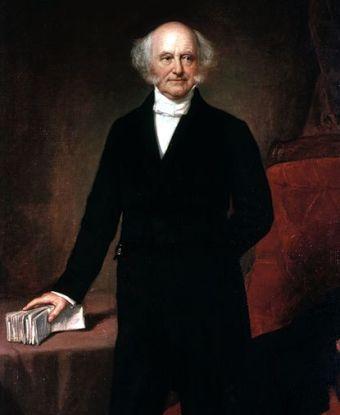Last updated: June 18, 2015
Person
Martin Van Buren

The White House Historical Association
Martin Van Buren was elected eighth President of the United States in 1836 after serving as Andrew Jackson's Secretary of State and Vice President. Involved in New York state politics from the age of 17, Van Buren organized the first state-wide political organization, the Bucktails, whose leaders were known as the Albany Regency. Along with other New York political clubs, including Tammany Hall, the Albany Regency helped develop the "spoils system," a system of dispensing public offices and largesse in exchange for votes. Van Buren became the principal organizer of the first national party, the Jacksonian Democrats, explaining that "Without strong national political organizations, there would be nothing to moderate the prejudices between free and slaveholding states."
Recognizing Van Buren's contributions to his election as President, Andrew Jackson appointed Van Buren as Secretary of State in 1829, even though Van Buren had just been sworn in as Governor of New York on January 1. Van Buren's support for Jackson following the latter's dispute with Vice President John C. Calhoun over issues such as the Bank of the United States made Van Buren the pre-eminent choice to succeed Calhoun as Vice President. In 1832, Jackson, with Van Buren as his Vice President, won re-election in a landside, chiefly due to Jackson's popularity as a war hero.
Van Buren won election to the presidency in 1836 despite lukewarm support in the South due to suspicions regarding his position on the issue of slavery. Van Buren's stated intention to "follow in the footsteps of my illustrious predecessor" was eclipsed by the Panic of 1837 and ensuing depression, with high unemployment and wide-spread bank failures. Bereft of tools to combat the depression, Van Buren failed in his 1840 re-election bid, losing to the popular William Henry Harrison. In 1848 Van Buren, now representing the anti-slavery Free Soil Party, failed in his attempt to reclaim the presidency.
